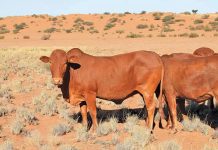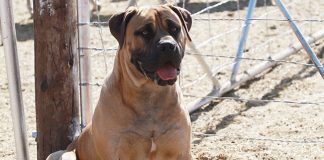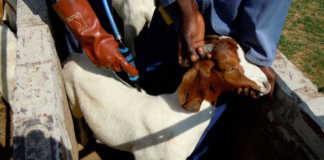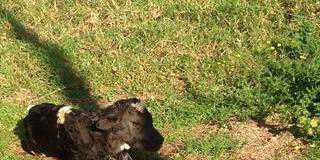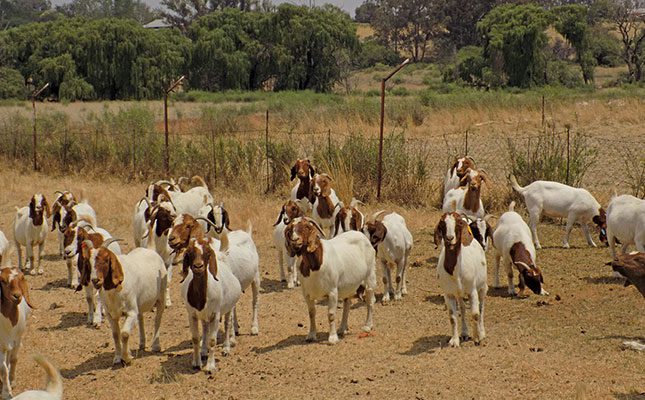
Goat breeds such as the Boer goat, Savanna, and Kalahari red aren’t only good meat-producing animals; they are hardy, and their feeding habits make them versatile and resilient.
Also, they have a comparatively good resistance to vector- and tick-borne diseases (although this may differ between different goat varieties and gene pools).
READ Capitalising on unused land with Boer Goats
In addition, goats have good maternal instincts, and I have noticed mature rams and ewes will protect their kids vigorously against predators such as jackals.
Unlike most cattle and sheep breeds, which are largely grazers (meaning they mainly eat grass in the open veld), goats love bushy biomes.
They will often choose to browse on trees and shrubs before they graze grass.
Controlling invasive plants
Having farmed Boer goats for a number of years, I have noticed that goats can control dense thickets and even invasive trees such as black wattle (Acacia mearnsii) and Port Jacksons (A. saligna).
They do this by ring-barking trees at the lower levels of the trunk. Goats love tree bark and will eat bark in circular patterns until the tree eventually dies.
This only really occurs, however, if goats are left in bushy camps for excessive periods; you may want to conserve good indigenous trees by rotating herds at regular intervals, and target camps plagued by invasive water-hungry trees.
Some farmers shred trees and use this mixture of trunks, bark, seeds, branches, and leaves to feed goats in feedlots or kraals during kidding when they want to keep mothers with newly born offspring for a few weeks before allowing them back into open camps.
Always make sure trees your goats are graze are non-toxic.
Prolific breeders
Goats are able to breed all year round. In fact, they are prolific breeders, and can become sexually active at five to seven months of age.
I prefer putting maiden ewes to rams at about 12 months of age, when they have increased in body weight and their mothering instincts are better developed.
While most sheep farmers will only breed one crop of lambs a year, goats can produce offspring every eight months, thus producing three lots of offspring every two years.
READ Meat, milk or wool: choose a sheep breed fit for purpose
Another big plus factor is that, although first-time breeders may only have single kids, older ewes are prone to having twins and triplets. This enables you to increase your herd size quite rapidly.
A further benefit compared with breeding cattle is that goats are pregnant for five months, while a cow’s gestation period is nine months.
Great for smaller farms
Goats are better suited to smaller farms, where approximately five breeding ewes can be carried for every cow that could be farmed.
Good-quality well-cared-for goats can be weaned at about 100 days. At this stage they should weigh 15kg-18kg. While there are goat buyers who will buy young goats of this age in order to grow them out further (prices can be in the region of R65/kg live weight), I choose to rather keep offspring until they are about nine months old.
If well cared for, they should weigh about 45kg. In recent years, good-quality goats in this weight category have been averaging about R53/kg live weight. This translates to about R2 385 per animal.
Indigenous
I have mentioned heavier meat varieties of goat, and South Africa’s communal farming areas already have a large number of indigenous and crossbred goats. While these may not be as desirable for slaughter purposes, they are indeed hardy and are also prolific breeders.
In order to improve meat-producing capacity and the size of these goats, consider introducing rams from the aforementioned breeds.
This could be a beneficial ‘upgrading strategy’. Certainly, it won’t see your goats losing the natural immunity that indigenous goat species have developed over a number of generations.
Take care, however, to ensure that your goats are secure; these animals are notorious for escaping. Net fences will be needed to contain goats in certain areas.
Shane Brody is involved in an outreach programme aimed at transferring skills to communal farmers.





